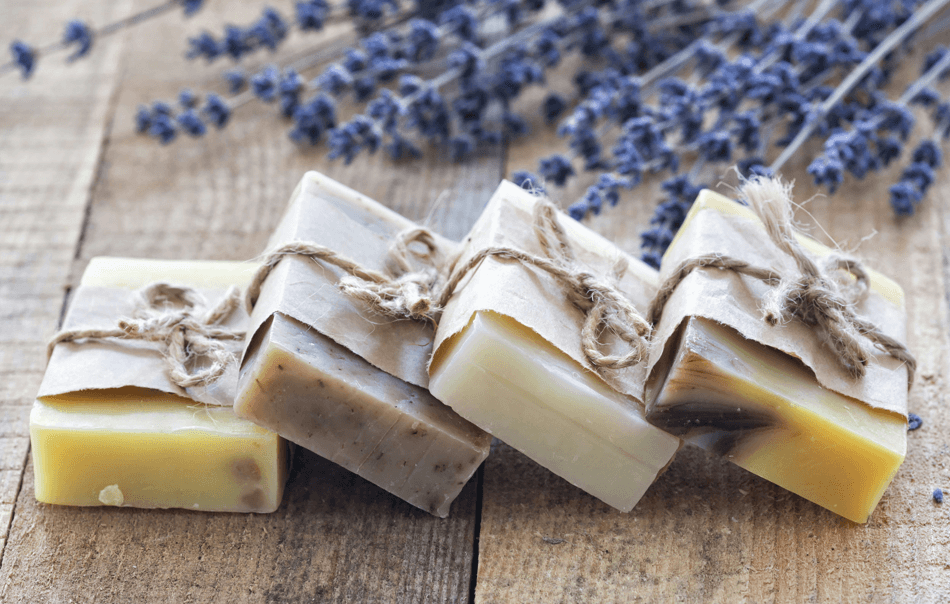Skincare for Sensitive Souls: A Guide to Hypoallergenic and Non-irritating Products

Hey there, beautiful souls! Are you tired of skincare products that promise the moon but leave your skin red, itchy, or irritated? Well, you're not alone.
The solution? Hypoallergenic and non-irritating products.
These are your best friends when it comes to caring for sensitive skin. They're formulated to minimize the risk of allergic reactions and skin irritation.
In this article, we'll explore what exactly hypoallergenic and non-irritating products are, why they're essential for sensitive skin, and how to choose the right ones for you.
We'll also talk about the importance of patch testing and understanding ingredient lists. So, let's get started!
A Detailed Explanation of Hypoallergenic and Non-irritating Products
What Does Hypoallergenic Mean?
The term "hypoallergenic" is often thrown around in the skincare world, but what does it really mean?
Hypoallergenic products are formulated to be less likely to cause allergic reactions. They are your go-to solutions for minimizing skin irritation and redness.
However, it's crucial to note that the term "hypoallergenic" is not regulated by the FDA. So, it's always a good idea to check the ingredient list andif in doubt; consult a skin care professional or dermatologist.
The Importance of Ingredients
When it comes to sensitive skin, ingredients are everything. You'll want to look for products that are free from common irritants like fragrance, parabens, and mineral oils.
Natural ingredients like chamomile, aloe vera, and hyaluronic acid are often included in hypoallergenic formulas for their soothing and moisturizing properties.
But remember, even natural ingredients can cause reactions in some people, so always do a patch test first.

Why Patch Testing is Crucial
Patch testing is your best tool for avoiding an allergic reaction. Apply a small amount of the product to a discreet area of your skin, like the inside of your wrist, and wait 24 to 48 hours.
If you experience any redness, itching, or other irritation, it's a sign that the product may not be suitable for your skin type.
The Role of Dermatologists
If you're unsure about which products to use, a dermatologist can provide personalized recommendations.
They can also perform allergy testing to identify specific ingredients that you should avoid. This is especially helpful for people with underlying skin conditions like eczema or rosacea, which make the skin more susceptible to irritation.
Here's everything else you need to know to make informed choices for your sensitive skin.
How to Read Ingredient Lists for Sensitive Skin
Reading ingredient lists can be a bit like deciphering a foreign language, but it's a crucial step in selecting the right products for your sensitive skin.
Look for terms like "fragrance-free," "alcohol-free," and "non-comedogenic" as these are usually good indicators that the product is suitable for sensitive skin.
Also, pay attention to the order of ingredients; those listed first make up the highest percentage of the product.
Tip: Apps like "Think Dirty" and "EWG's Skin Deep" can help you understand the safety and irritability level of each ingredient.
They're great tools for those who are new to the world of skincare ingredients.
Why Natural Products Can Be Beneficial but Aren't Always the Answer
Natural products often tout their benefits for sensitive skin, and for a good reason (and I'm personally a big fan!).
Ingredients like aloe vera, chamomile, and calendula are known for their soothing properties.
However, "natural" doesn't always mean "better". Some natural ingredients can be irritating or cause allergic reactions. Always perform a patch test, even with natural products.
For example, Tea tree oil is natural and has antibacterial properties, but it can be irritating to some people. Always dilute it before applying it to your skin.
The Role of Dermatologists in Choosing the Right Products
If you're feeling overwhelmed by the plethora of products claiming to be hypoallergenic or suitable for sensitive skin, a dermatologist can be your guiding light.
They can perform patch tests and even blood tests to identify specific allergens you should avoid. Plus, they can recommend products that have been clinically tested for sensitive skin types.
Think of a dermatologist as your skincare GPS. They won't just give you directions; they'll provide a complete roadmap tailored to your skin's unique needs. Once you have that roadmap, you can use it to assess any new products that you find of interest.
The Role of pH in Skincare for Sensitive Skin
The pH level of your skincare products can make a significant difference in how your skin reacts.
Our skin has a natural pH level of around 5.5, which is slightly acidic. Products that are too alkaline can disrupt this balance, leading to irritation and dryness.
Look for products labeled "pH-balanced" to ensure they're in sync with your skin's natural pH.
pH strips are an affordable and easy way to test the pH level of your skincare products at home.
The Importance of Patch Testing Every New Product
I've touched on this above, but it's worth reiterating: always patch test new products.
This is especially crucial when transitioning to a new skincare routine. Apply a small amount of the product on a discreet area like the inside of your wrist or behind your ear. Wait for 24 to 48 hours to see if any irritation occurs.
For example, if you're patch testing a new facial cleanser, apply a small amount to a cotton pad and gently dab it on the test area. Rinse it off after the recommended time and wait to see if any irritation occurs.
How to Safely Transition to New Skincare Products
Switching to new skincare products can be exciting but do it gradually to minimize the risk of irritation.
Start by introducing one new product at a time and give your skin at least a week to adjust before adding another. This way, if you do experience irritation, it's easier to pinpoint the culprit.

A List Of Ingredients Generally Considered Hypoallergenic
Here are a list of ingredients commonly found in skincare products that are considered to be Hypoallergenic.
However, don’t assume that any one of them will automatically be hypoallergenic for you, or that you won’t react to some other ingredient in the product. As always – patch test!
- Ceramides: These are lipid molecules that help to maintain the skin's barrier, making them ideal for sensitive skin.
- Hyaluronic Acid: Known for its hydrating properties, hyaluronic acid is generally well-tolerated by all skin types.
- Aloe Vera: This plant extract is known for its soothing and anti-inflammatory properties.
- Chamomile: Often used in products for sensitive skin, chamomile has anti-inflammatory, antioxidant, and astringent properties.
- Calendula: This is another plant extract known for its anti-inflammatory, antifungal, and antibacterial properties.
- Glycerin: A humectant that draws moisture into the skin, glycerin is generally considered safe for sensitive skin.
- Squalane: Derived from squalene, this ingredient is known for its moisturizing and anti-aging properties.
- Niacinamide: Also known as Vitamin B3, niacinamide can help to reduce redness and inflammation.
- Zinc Oxide: Often found in mineral sunscreens, zinc oxide is known for its skin-protecting and anti-irritating properties.
- Allantoin: Derived from the root of the comfrey plant, allantoin is used for its healing, moisturizing, and soothing properties.
- Panthenol: Also known as Provitamin B5, panthenol is used for its moisturizing and soothing effects.
- Green Tea Extract: Known for its antioxidant properties, green tea can help to soothe the skin and reduce redness.
- Oatmeal: Colloidal oatmeal, in particular, is known for its skin-soothing properties and is often used in products for eczema and psoriasis.
- Shea Butter: A rich emollient that is generally well-tolerated by most skin types.
- Jojoba Oil: Closely mimics the skin's natural oils, making it a good moisturizer for sensitive skin.

Remember, everyone's skin is different, and what works for one person may not work for another. Always do a patch test first and consult with a dermatologist if you have specific concerns or allergies.
Final Thoughts
I hope this article has helped you understand the nuances of hypoallergenic and non-irritating products for sensitive skin.
From deciphering ingredient lists to the importance of pH balance and patch testing, you're now equipped with the basic tools you need to make informed choices.
Remember, your skin is as unique as you are, and it deserves the best care possible. So go ahead, explore these gentle formulas and embrace the flawless, irritation-free skin you've always dreamed of.
Frequently Asked Questions
What are hypoallergenic products?
Hypoallergenic products are formulated to minimize the risk of allergic reactions and skin irritation.
What is the difference between hypoallergenic and sensitive?
Hypoallergenic refers to the product's formulation, while "sensitive" often refers to the skin type that benefits from such products.
Is hypoallergenic the same as nonallergenic?
No, hypoallergenic means less likely to cause allergies, while nonallergenic means it should not cause allergies at all.
Is hypoallergenic good for itchy skin?
Yes, hypoallergenic products are generally formulated to alleviate symptoms like itching and redness.





